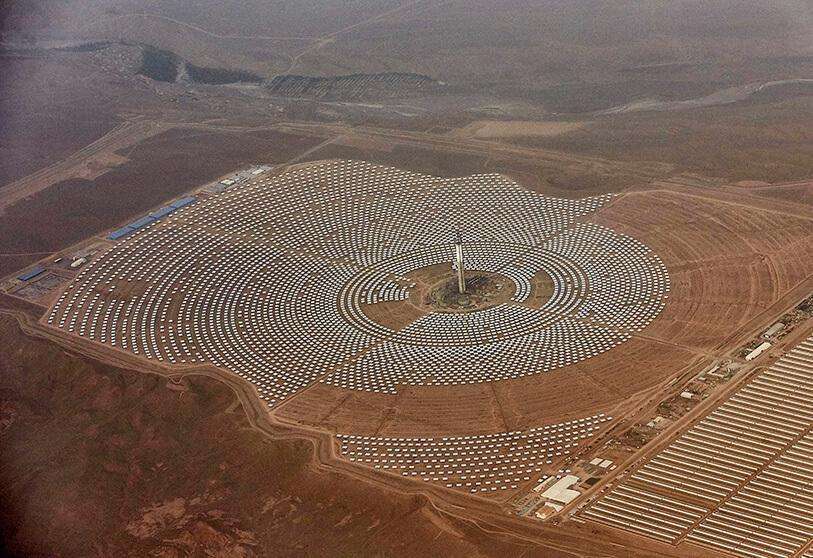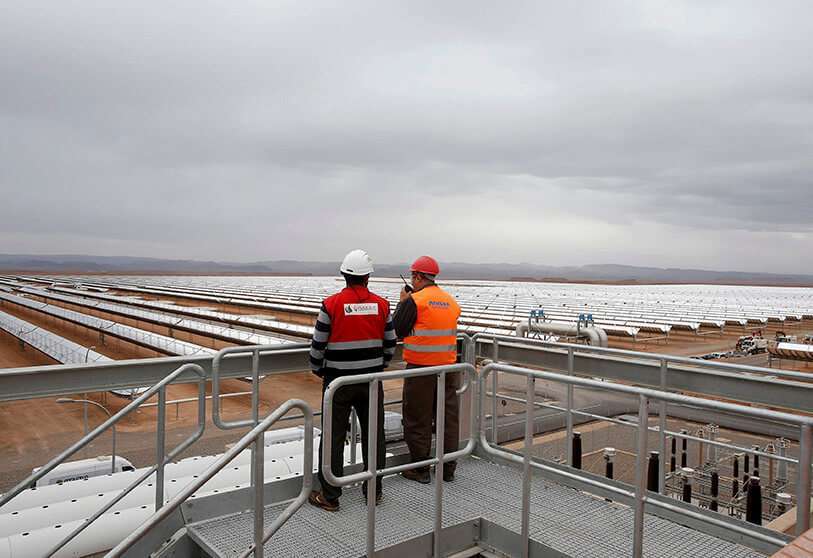Marruecos enseña su plan ecológico a las Naciones Unidas

Morocco has just submitted a document to the UN - United Nations - in which it has presented a roadmap in which the country initiates a bid to use greener energies, which, in turn, will create a more competitive economy. The Kingdom will devote 70% of its energy to renewable energies by 2040 and 80% by 2050.
Morocco's main objective is, firstly, to accelerate the strong development of renewable energies for carbon-free electricity. Secondly, the plan is to improve the electrical systems used in sectors such as industry, construction and transport. The development of a change of elements, such as the use of green hydrogen, would decarbonise industry and road freight transport. Lastly, Morocco wants to generalise energy efficiency and the use of natural resources, which the country wants to apply in all sectors.

The Alawi kingdom is demonstrating its interest in environmentalism and green and cleaner energies. For several years now, the various governments have been working on many plans to combat the greenhouse effect and the emission of harmful gases. One of the latest measures to achieve an energy transition has been the changeover of the Al-Boraq trains - high-speed trains - to use clean energy for their operation. The ONCF, the National Office of Railways in Morocco, which is in charge of the project, has explained that 25% green energy will be used initially, and 50% next year.
The nation claims that this will be possible thanks to the current technologies and cost perspectives available in the country. The experts started with the main guidelines for the decarbonisation of the country's industry, highlighting levers such as R&D and the adoption of a fiscal framework related to a transition to a greener economy.
Another of the main plans to achieve a greener territory has been the process of decarbonisation in the industrial sectors. According to Moroccan media, three projects will be completed by 2023 that will position the Kingdom as a decarbonised industrial base powered by renewable energies.

Morocco has been investing for the past two decades in sustainable development and the creation of clean energy. Moulay Hafi Elalamy, former Minister of Industry, Trade and Digital Economy and Green of the former directive, stated at the time that after the COVID-19 crisis, accelerating ecological change and complying with the orders issued by the competent authorities was one of the principles of the Maghreb country. "This policy of anticipating global trends that we had today in Morocco shows its full meaning. We will bring the share of clean energy to 52% in our energy mix in the very near future. Part of this green energy production can be directed towards industry," said the former minister.
The country has a number of projects that are rated as more environmentally friendly, signifying a commitment to a better future for all its citizens. Electric charging networks for sustainable vehicles, self-sufficient cities such as Essaouira by 2022, hundreds of solar and wind power plants such as Noor Ouarzazate, smart ports, and so on. The Kingdom has set its sights on environmentalism and one of its main challenges is to reach the point where, by 2050, Morocco will use 100% renewable and clean energy to sustain the nation.
The nation's interest in environmentalism is making its mark and several reports have already placed it among the countries with the greatest potential to fight climate change. The shift to green energy has brought great benefits, not only in terms of the benefits of its use, but also in terms of increasing income, expanding employment opportunities and increasing the development of various sectors.









